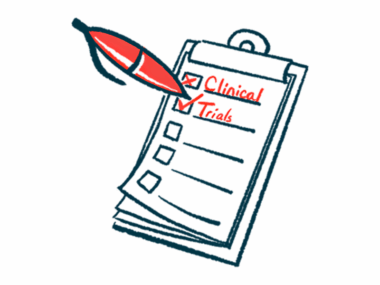The World Parkinson Congress: exciting, eye-opening, exhausting
Learning how much is too much, and other lessons from the trip
Written by |

Planning for travel is essential, and my recent trip to Spain for the 6th World Parkinson Congress (WPC) posed a question: While the host city, Barcelona, had planned for me and others with Parkinson’s through the World Parkinson Coalition’s Parkinson’s Ready program, would I be able to plan for Barcelona?
Yes, I’d planned my role at the congress, held July 4-7, as one of the global ambassadors representing the Parkinson & Movement Disorder Alliance, but we had to get there first. My Spanish vocabulary included only three words: hola (hello), gracias (thank you), and baño (bathroom). But it was enough to get us to our hotel and checked into our room, if not enough for everything else.
WPC 2023 Day 1: arrival
The WPC, which meets every three years, is an all-inclusive global event for learning, discussing, and debating the latest Parkinson’s news. This congress was expected to welcome over 4,000 delegates, including people with Parkinson’s, researchers, industry leaders, organizations, and care partners. (The past five congresses had averaged over 3,000 attendees.) This melting pot led to discussions from many perspectives in lectures, workshops, roundtable discussions, and other events and platforms.
Completing our registrations, my husband, Mike, and I filled every time slot from 8 a.m. to 5:30 p.m. with events, from Day 1 to Day 3. I wanted to learn by doing it all, which seemed like a perfect plan. It was, until Day 2.
Day 2: excitement and exhaustion
When we travel, I have an uncanny ability to create a “lived-in look,” even in a small space. I’m messy and lose everything at least once — except my phone, which I lose repeatedly. This trip was no exception.
Day 2 started with an absolute breakdown while frantically trying to find my phone and wailing, “I can’t do this. I’m too slow. We’ll be late.” With the help of my rock-star traveling companion, though, I pulled myself together. Day 2 was a success, and so was Day 3.
What changed? We slowed down, prioritized our interests, and divided and conquered. Mike explored the care partner sessions while I explored other topics. Our interests didn’t have to be the same, and we decided it was OK to skip things and recharge.
Heading home
While the Airline Passengers with Disabilities Bill of Rights applies to flights in and out of the United States, the international airports were challenging. Mike and I had no idea what we were doing in those.
We followed the crowd, made it through customs, and found our gate. Unfortunately, my cute medical ID bracelet, designed to alert others to my Parkinson’s and normally allowing me to preboard, was met with an empty look (what my fellow Peloton users might think of as a “glazed doughnut” look). My three Spanish words didn’t apply in that situation. I knew we had assigned seats, however, so I returned to our place in line.
Boarding should’ve been easy. Instead, the walkway to the plane, the narrow aisles inside it, and other passengers’ annoying pushes on my backpack triggered my anxiety. But remembering that I had an assigned seat once again calmed me down.
Despite not being able to preboard, I flexed my rights, and the poor souls who needed to push me experienced my need to walk even slower. I felt empowered without saying a word. Everything worked out, but I recommend learning a few more words of the host country when traveling abroad. I know I will.
Stay tuned for upcoming “Life, Lemons, and Lemonade” columns featuring topics covered at the World Parkinson Congress.
Note: Parkinson’s News Today is strictly a news and information website about the disease. It does not provide medical advice, diagnosis, or treatment. This content is not intended to be a substitute for professional medical advice, diagnosis, or treatment. Always seek the advice of your physician or another qualified health provider with any questions you may have regarding a medical condition. Never disregard professional medical advice or delay in seeking it because of something you have read on this website. The opinions expressed in this column are not those of Parkinson’s News Today or its parent company, Bionews, and are intended to spark discussion about issues pertaining to Parkinson’s disease.







Leave a comment
Fill in the required fields to post. Your email address will not be published.